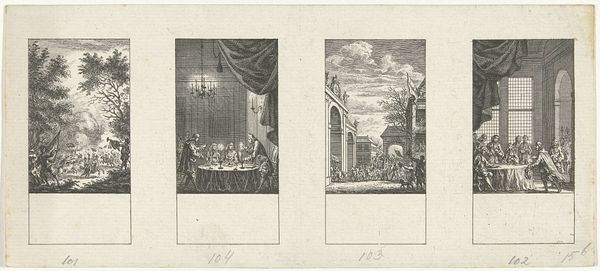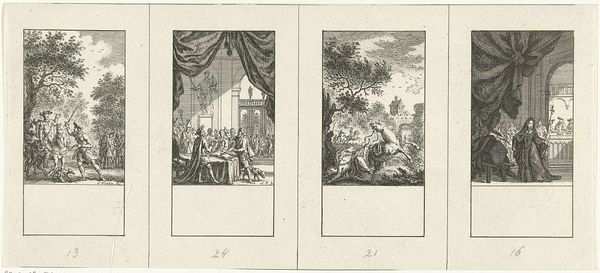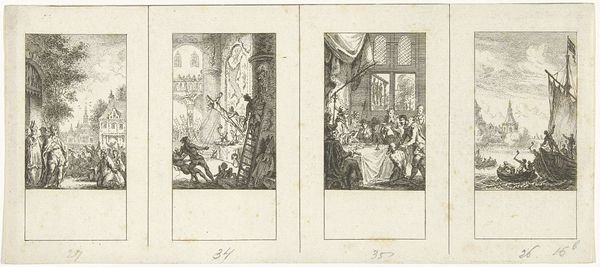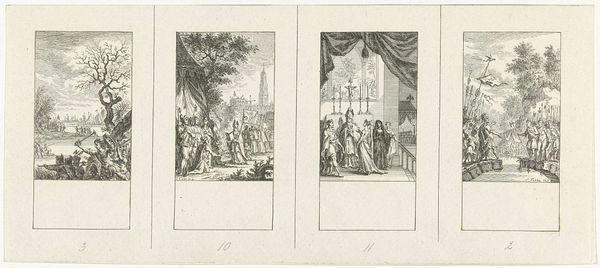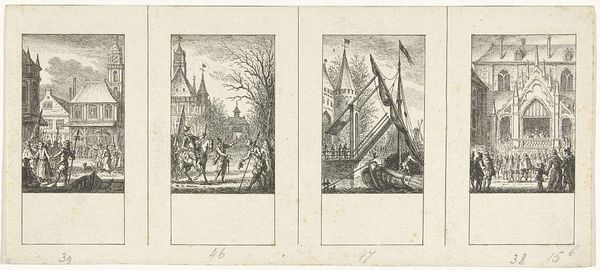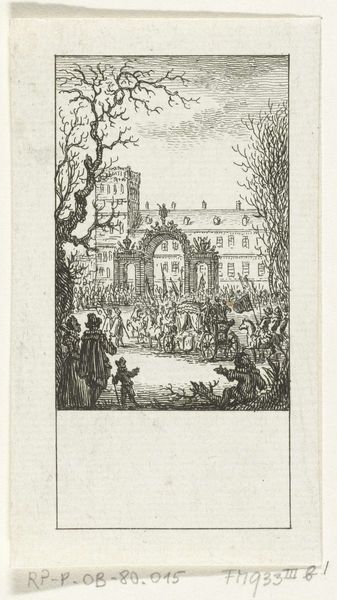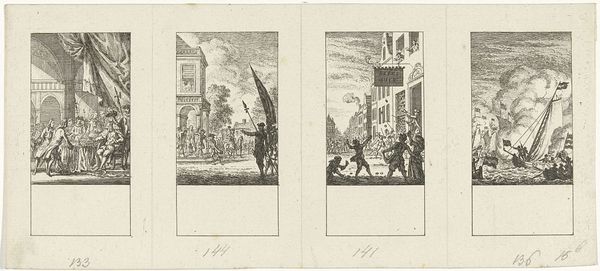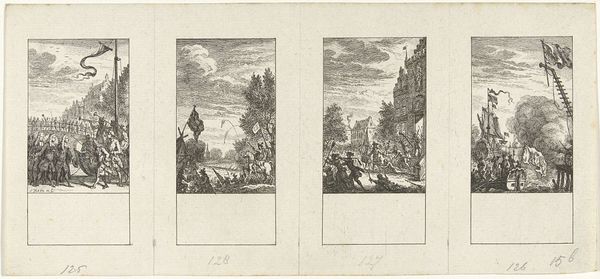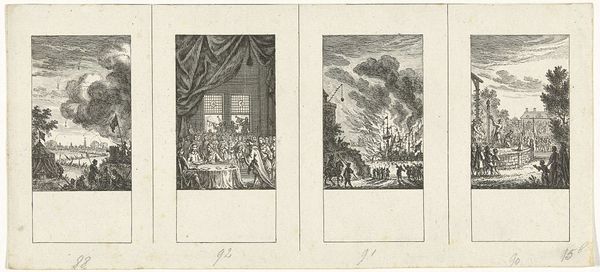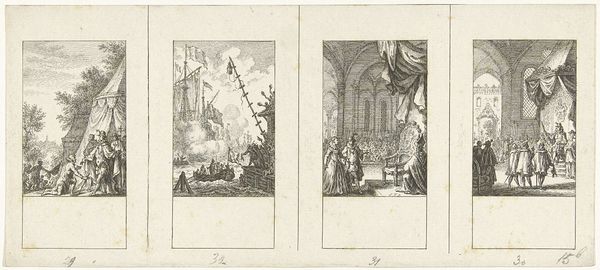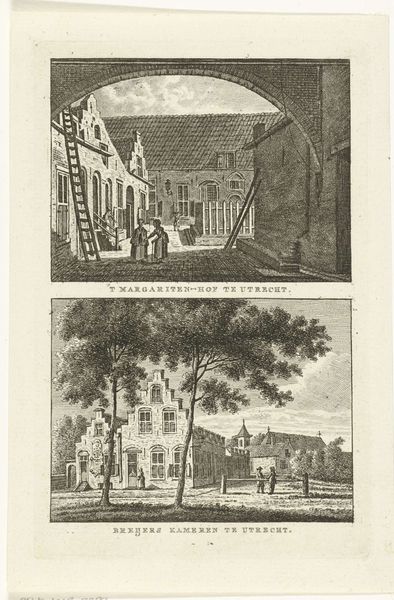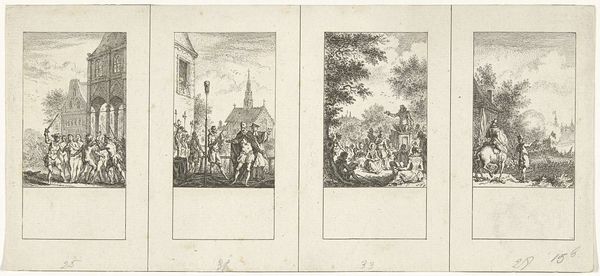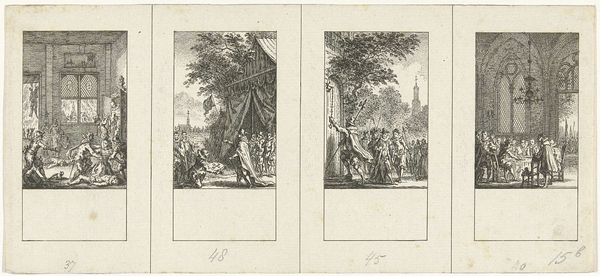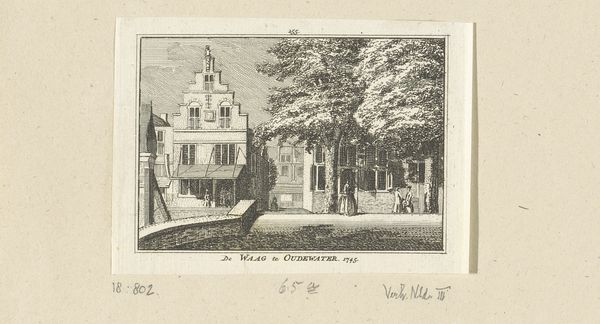
print, engraving
#
narrative-art
#
baroque
# print
#
old engraving style
#
figuration
#
pen-ink sketch
#
ink colored
#
line
#
genre-painting
#
history-painting
#
engraving
Dimensions: height 112 mm, width 249 mm
Copyright: Rijks Museum: Open Domain
Simon Fokke made these four prints depicting episodes from Dutch history sometime before his death in 1784, using the intaglio process of etching. To make these, he would have covered a copper plate with a waxy ground, then scratched through it with a sharp needle to expose the metal. Immersing the plate in acid would then bite away at these exposed lines, creating recessed marks that hold ink. If you look closely, you can see a certain wiry quality to the lines – the result of this chemical process. Consider also the labor involved: each plate would have taken hours of patient work. And because prints can be editioned, Fokke’s efforts could be multiplied and distributed widely. This was crucial to the project of nation-building – communicating shared stories to the public. And because printmaking was more accessible than painting or sculpture, it allowed for a wider range of voices and perspectives. So, while these prints may seem modest in scale, they are monumental in their cultural significance, reflecting a moment when making and materials helped to shape collective identity.
Comments
No comments
Be the first to comment and join the conversation on the ultimate creative platform.
